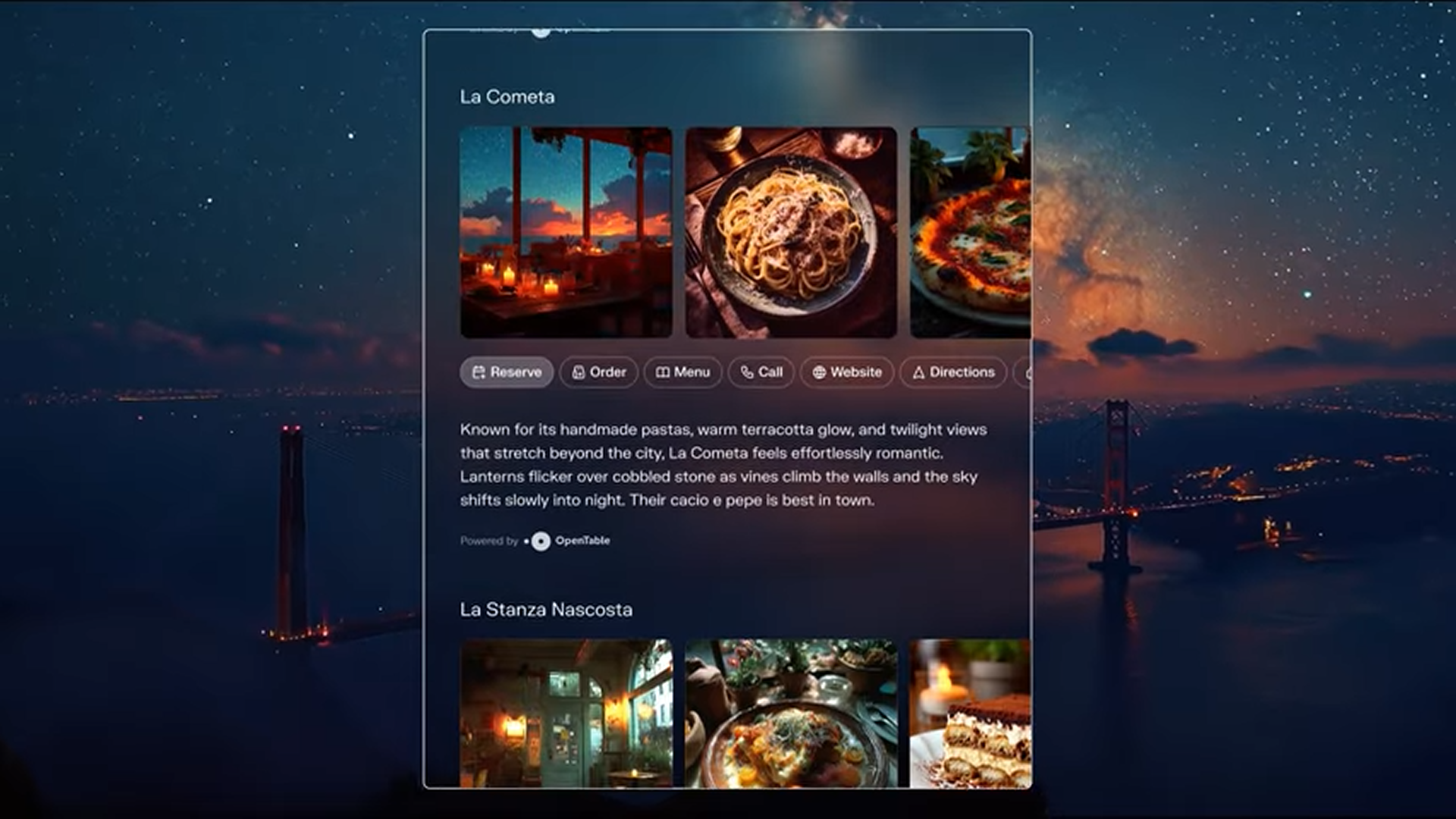Perplexity can help you figure out where to eat, and book your table too
Perplexity's AI chatbot has embedded OpenTable's reservation system

Sign up for breaking news, reviews, opinion, top tech deals, and more.
You are now subscribed
Your newsletter sign-up was successful
- Perplexity's AI chatbot will both find and book restaurant tables through OpenTable
- The conversational approach streamlines the process of fulfilling requests for the details of the location and when it has an opening
- Perplexity hopes the integration will encourage people to stay on the platform rather than needing to leave to complete a task
AI search engine Perplexity wants to do more than just find your next restaurant; it wants to book your table. Perplexity made a deal with OpenTable to embed the reservation tool into Perplexity. Instead of just providing links to restaurants to help you reserve a table, you can get a spot at any of OpenTable’s more than 60,000 restaurants within the conversation.
The first part of the process is the same as before in Perplexity. Ask for “a quiet Thai place in Brooklyn that’s good for vegetarians and has outdoor seating,” and it’ll serve up a filtered list of OpenTable options that match your requested decor, dietary needs, and vibe. If you see a location you'd like to go to that is available through OpenTable, there will be a “Reserve” button for when you want to go, and you’re done. Instead of hopping from search to decision to reservation, you now get everything in one conversation.
Dining Perplexity
The deal encourages people to stick around on Perplexity to make their dinner plans, part of a bigger trend where AI platforms try to not just provide information, but complete tasks. Booking a table might seem like a small thing, but the magic lies in collapsing all the invisible steps between wanting to find a place to go and actually doing so.
The normal route might involve a half-hour of browsing, second-guessing, and refreshing OpenTable to see what’s still available. With Perplexity’s new system, you describe the scenario and watch it solve itself. Under the hood, OpenTable’s own AI Concierge handles most of the work. It draws on each restaurant’s metadata, including menus, seating arrangements, and any tags attached to its listing on OpenTable, and uses that to give Perplexity more precise recommendations.
Perplexity shows the restaurant, available times, and then OpenTable handles the booking itself, complete with confirmation and any options to modify or cancel. It’s not an autonomous agent like ChatGPT's Agent Mode. It smooths the path between the two services but doesn't travel between them like an Agent would.
That's probably for the best since Perplexity can occasionally misunderstand your request or over-promise based on incomplete restaurant data, but OpenTable won't book you a table that's not available. And while OpenTable’s restaurant profiles are usually rich in detail, they still rely on restaurants to keep things accurate.
From OpenTable’s perspective, this is a distribution move. Putting their booking infrastructure into Perplexity’s flow gives them access to a new set of users. Instead of trying to win attention in a crowded app race, OpenTable becomes part of a platform people are already using. As AI assistants continue to evolve, expect more of these seamless handoffs between search, decision, and action. Booking a table might just be the beginning; better reserve your spot now.
Sign up for breaking news, reviews, opinion, top tech deals, and more.
You might also like

Eric Hal Schwartz is a freelance writer for TechRadar with more than 15 years of experience covering the intersection of the world and technology. For the last five years, he served as head writer for Voicebot.ai and was on the leading edge of reporting on generative AI and large language models. He's since become an expert on the products of generative AI models, such as OpenAI’s ChatGPT, Anthropic’s Claude, Google Gemini, and every other synthetic media tool. His experience runs the gamut of media, including print, digital, broadcast, and live events. Now, he's continuing to tell the stories people want and need to hear about the rapidly evolving AI space and its impact on their lives. Eric is based in New York City.
You must confirm your public display name before commenting
Please logout and then login again, you will then be prompted to enter your display name.
